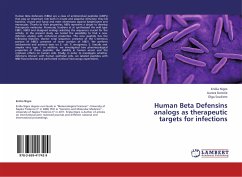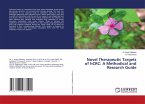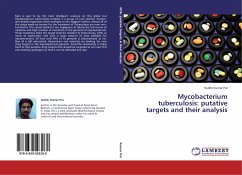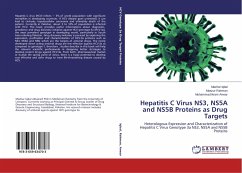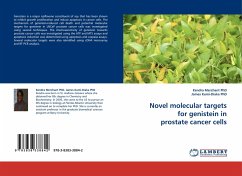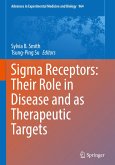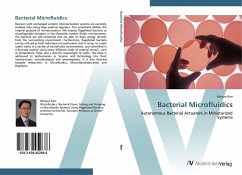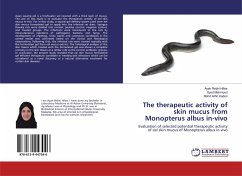Human Beta Defensins (hBDs) are a class of antimicrobial peptides (AMPs) that play an important role both in innate and adaptive immunity: they kill bacteria, viruses and fungi and exert chemotaxis against lymphocytes and monocytes. Thanks to their properties, hBDs represent a target to develop therapeutic molecules. Previously, Scudiero et al. synthesized the wild type hBD1, hBD3 and designed analogs selecting the sequences crucial for the activity. In the present study, we tested the possibility to find a new defensin analog with enhanced properties. The new peptide has the following features: shorter total sequence; presence of the C-terminus portion of hBD3; presence of inner portion of hBD1. We perform antibacterial and antiviral tests on E. coli, P. aeruginosa, E. faecalis and simplex virus type 1. In addition, we investigated two pharmacological properties of these peptides: the stability in human serum and the cytotoxic effects on human cells. Finally, in order to investigate whether defensins interact with human epithelial cells, we labeled peptides with NBD fluorochrome and performed confocal microscopy experiments.
Bitte wählen Sie Ihr Anliegen aus.
Rechnungen
Retourenschein anfordern
Bestellstatus
Storno

